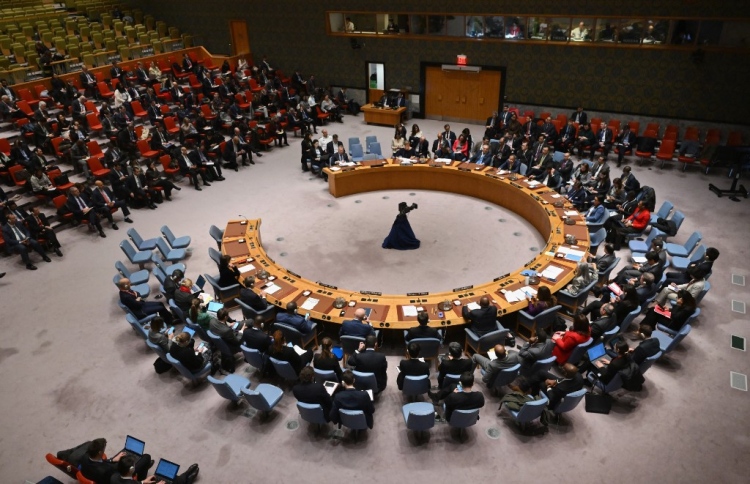Jahanvi Agarwal
The United Nations Security Council (UNSC) made a significant move on 25th March 2024, urging a ceasefire to the conflict in Gaza during the sacred month of Ramadan, marking the Council’s first call to cease fighting. Notably, the United States chose to abstain from the vote on the resolution, which also demanded the release of hostages taken during a Hamas surprise attack in southern Israel last October, the event that ignited the ongoing war.
The resolution did not directly link the demand for hostage release with the call for a ceasefire during Ramadan, which concludes on April 9th. U.N. Secretary-General António Guterres emphasized the importance of implementing the resolution, stating that failure to do so would be unacceptable.
This move comes after several developments in the conflict’s legal and diplomatic landscape. The Security Council previously adopted two resolutions addressing the worsening humanitarian crisis in Gaza, but neither specifically called for a cease-fire. The recent resolution’s demand for cessation of hostilities during Ramadan, although lasting only around two weeks, aims to pave the way for a more enduring peace.
The path to this resolution was not without challenges. A previous U.S -sponsored resolution for an immediate and sustained ceasefire was vetoed by Russia and China, who argued that it lacked clarity and did not align with the global call for an end to hostilities.
The U.S. warned that the approved resolution could hinder efforts to negotiate a lasting solution to the conflict, a sentiment echoed by the Israeli Prime Minister Benjamin Netanyahu’s office, which criticized the U.S. abstention as a departure from its previous stance.
Furthermore, the Security Council’s deliberations reflected broader tensions among world powers. Russia and China criticized the earlier U.S. drafts as rhetorical exercises that failed to address the core issue of ending the fighting. Russia’s U.N. Ambassador criticized the draft as “philosophical wording” and accused U.S. officials of misleading the international community. China’s U.N. Ambassador echoed similar sentiments, stating that the proposal fell short of expectations and set unrealistic preconditions.
The diplomatic moves regarding the Gaza conflict show how complicated it is for countries to fix the problem. While the UNSC’s resolution represents a significant step towards peace, challenges remain in translating diplomatic agreements into tangible improvements on the ground.
In light of these developments, it is essential for all parties involved to prioritize dialogue and negotiation to address the root causes of the conflict and ensure the well-being of civilians caught in the crossfire. The international community must continue to support efforts to reach a sustainable cease-fire and facilitate humanitarian aid to alleviate the dire conditions in Gaza.
As the conflict in Gaza continues to unfold, the role of diplomacy and international cooperation remains paramount in achieving lasting peace and stability in the region. It is imperative for all stakeholders to demonstrate leadership and commitment to resolving the crisis through peaceful means.


